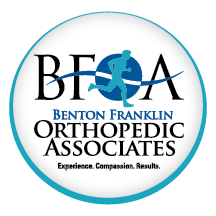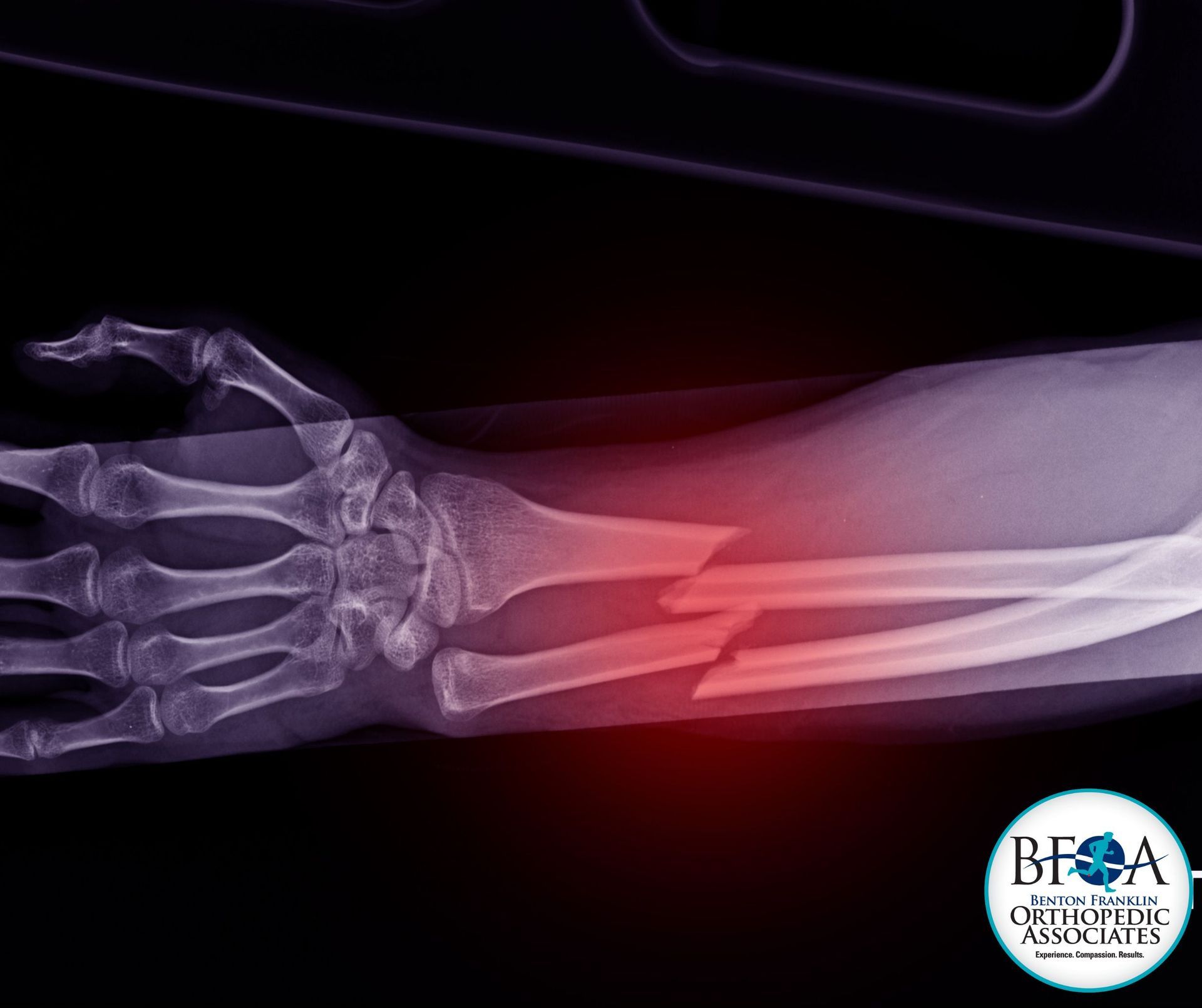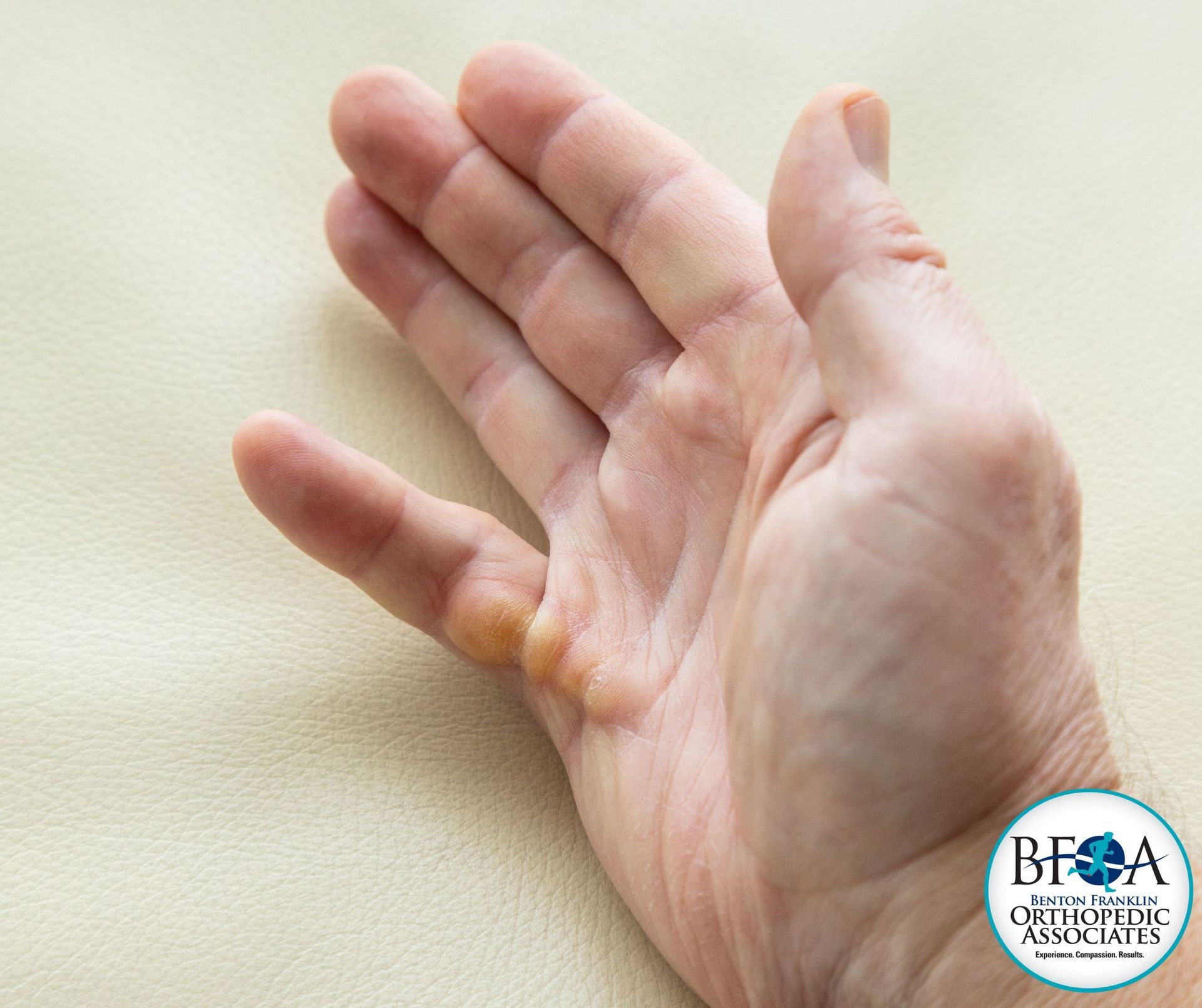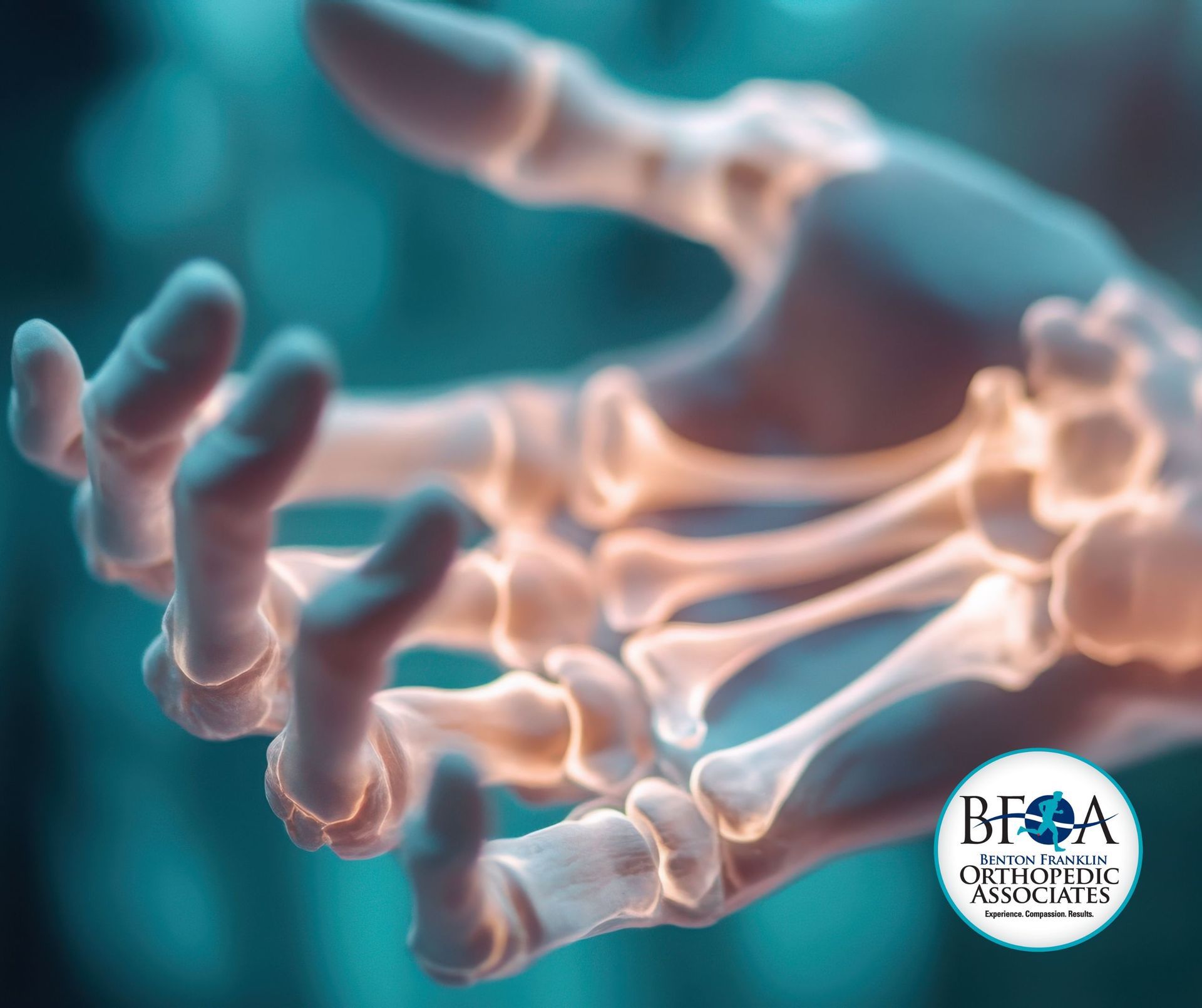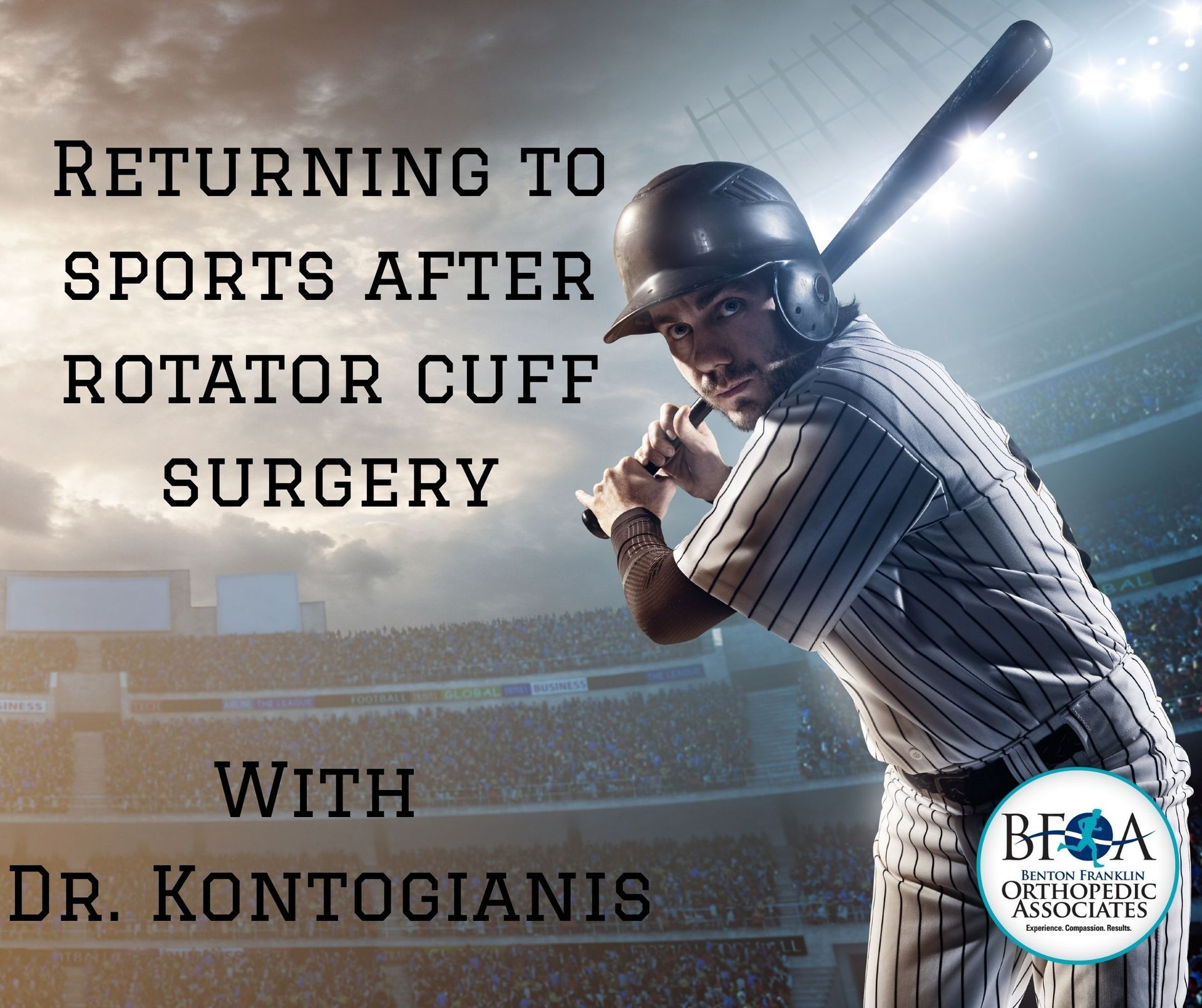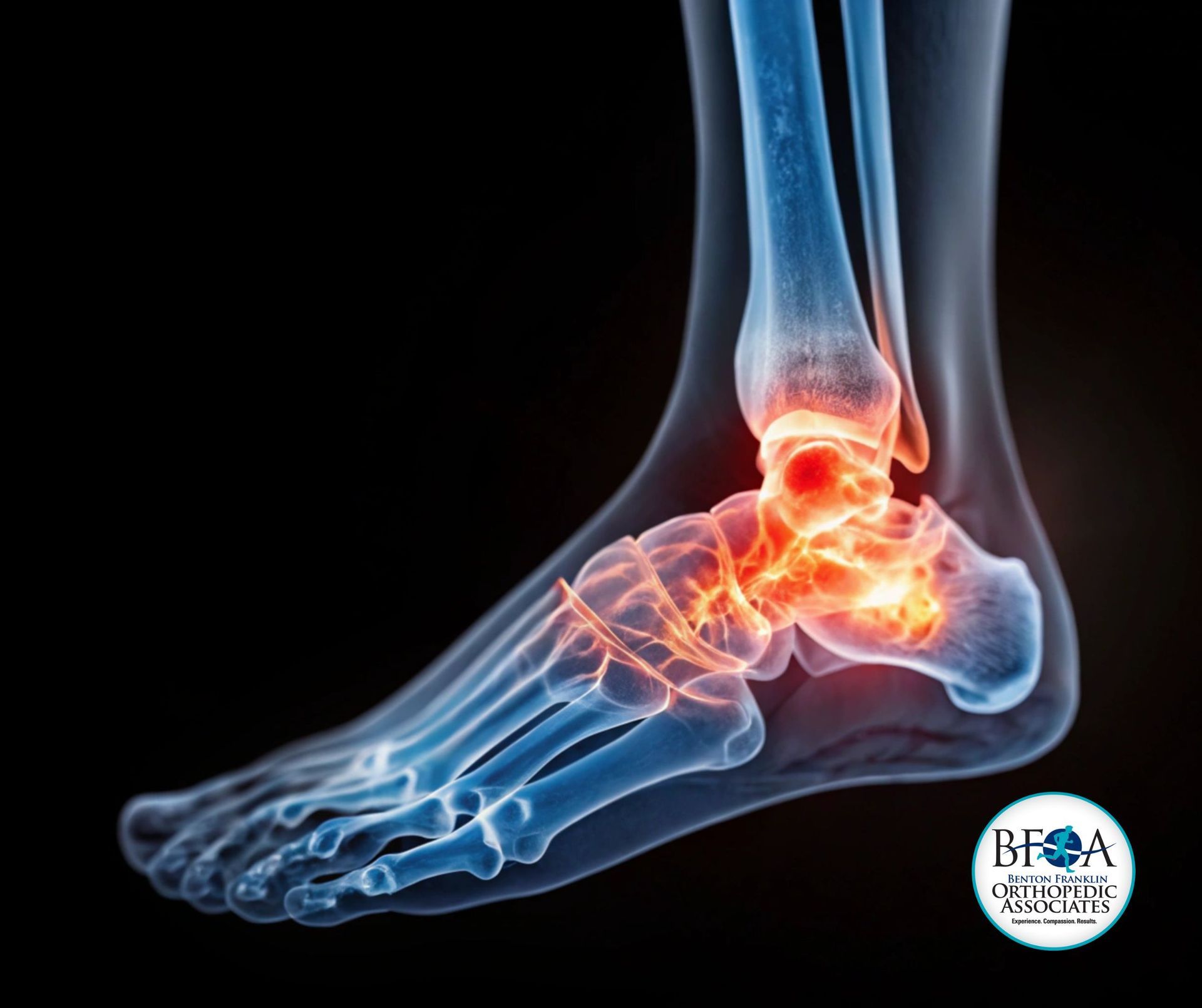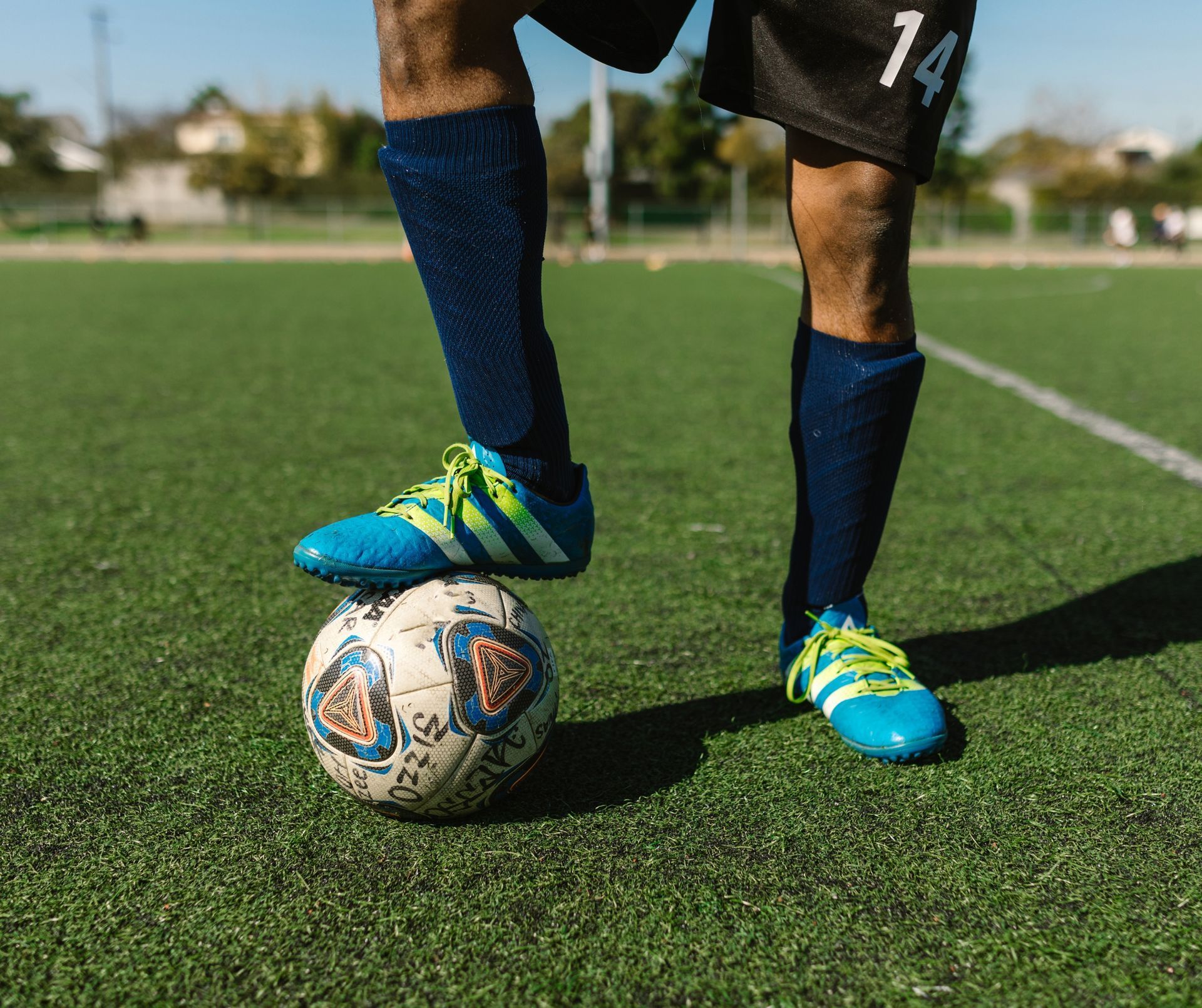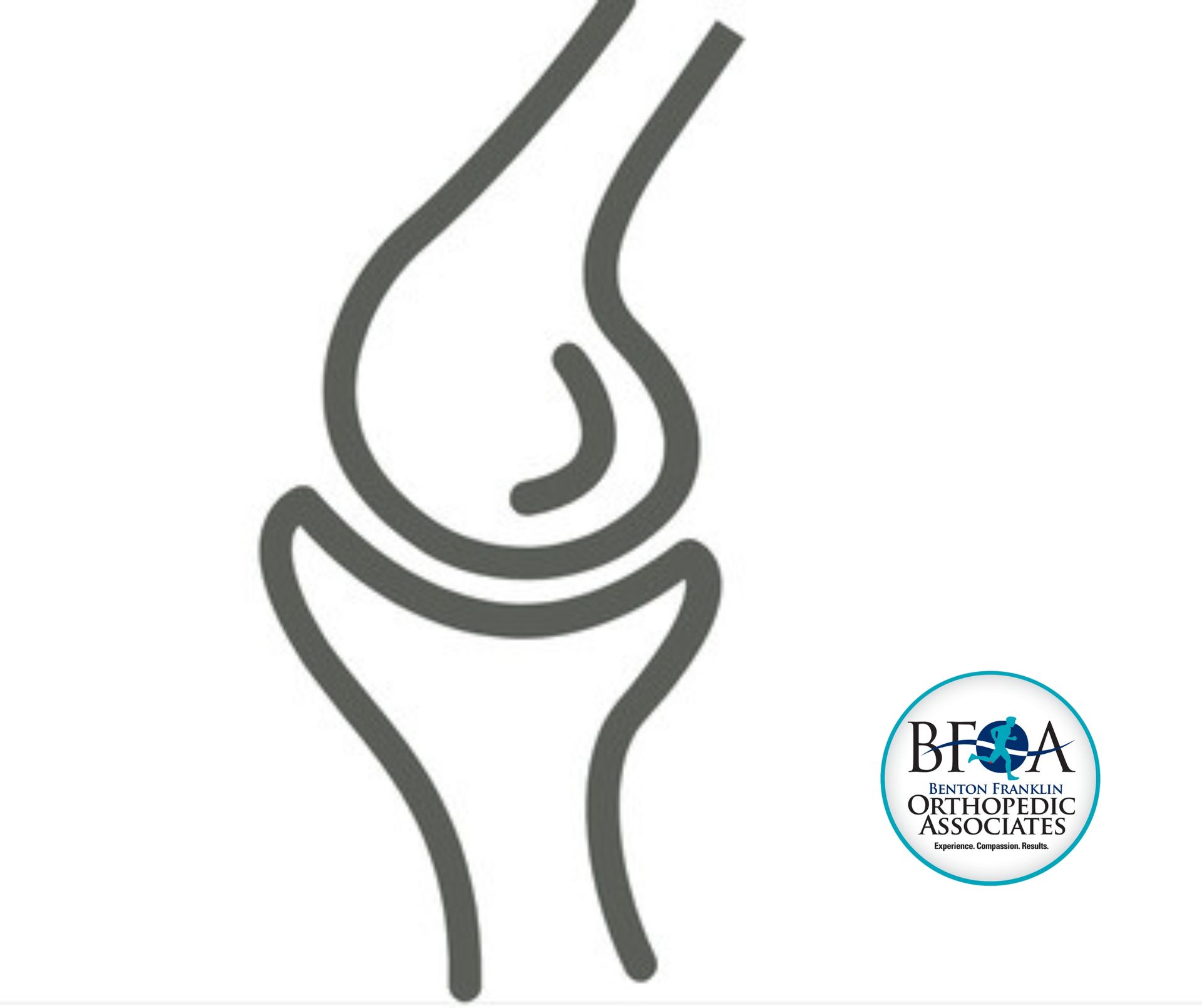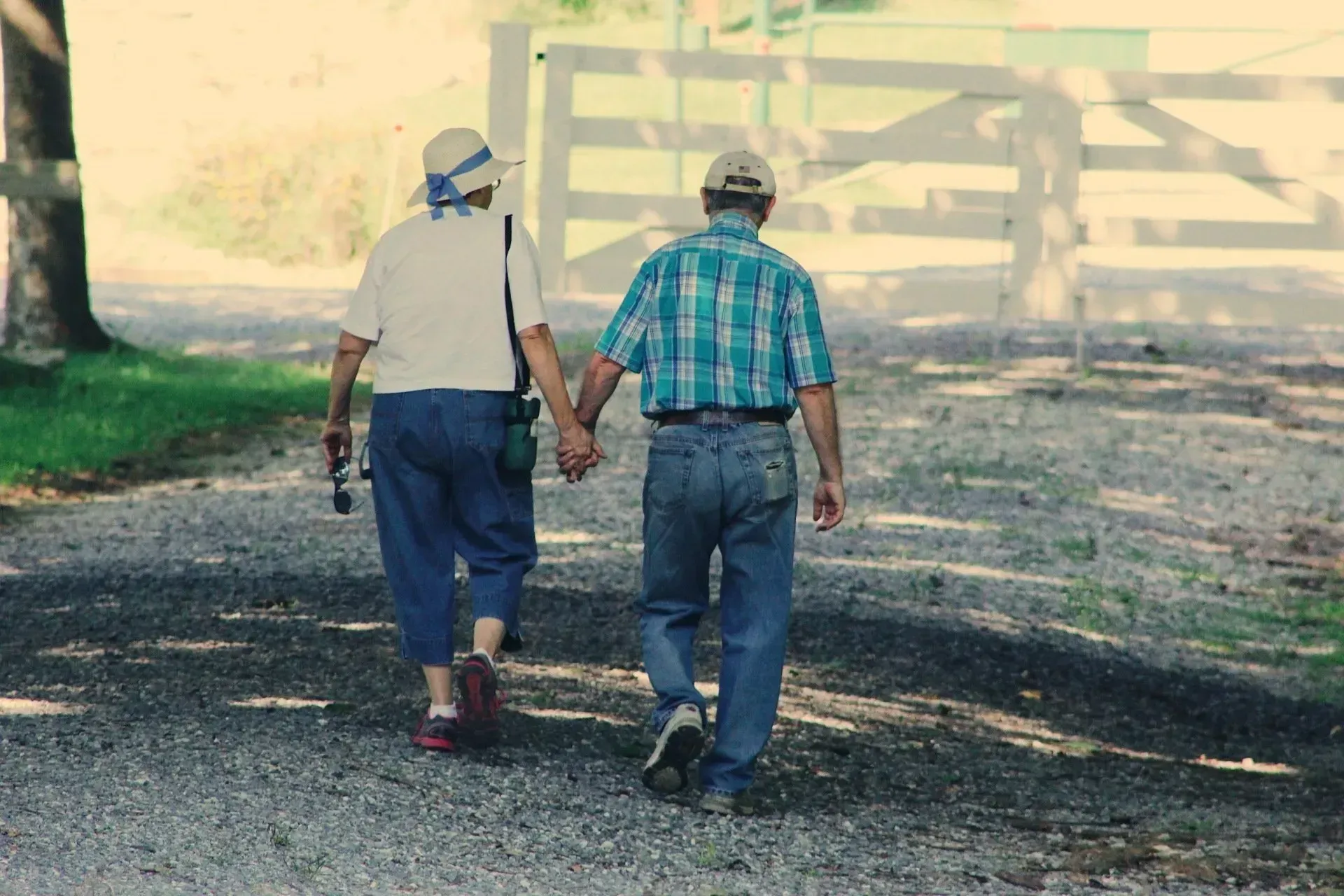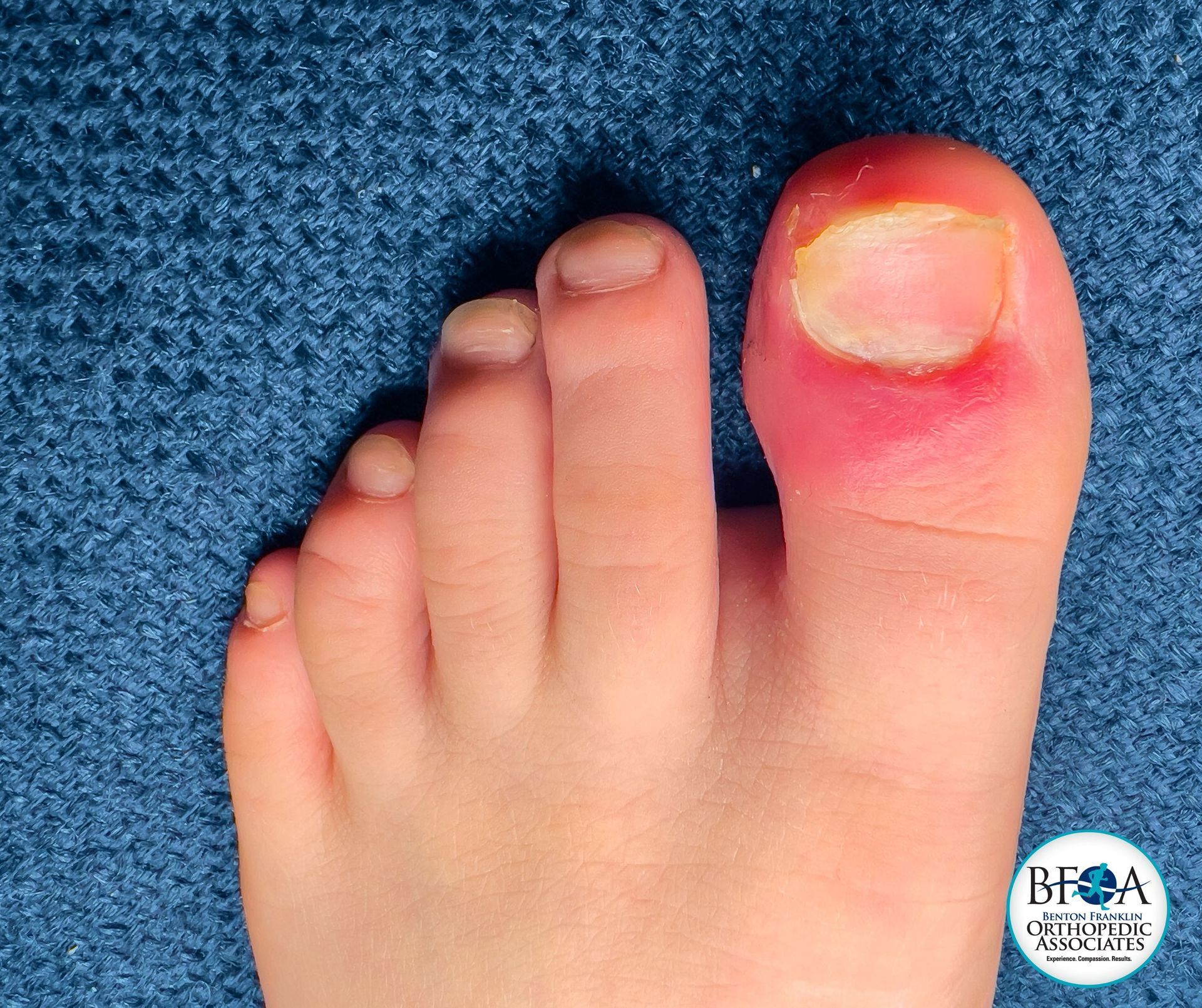Anterior Cruciate Ligament (ACL) Tear in Kennewick, WA
Understanding Anterior Cruciate Ligament (ACL) Tears: Causes, Symptoms, and Comprehensive Care.
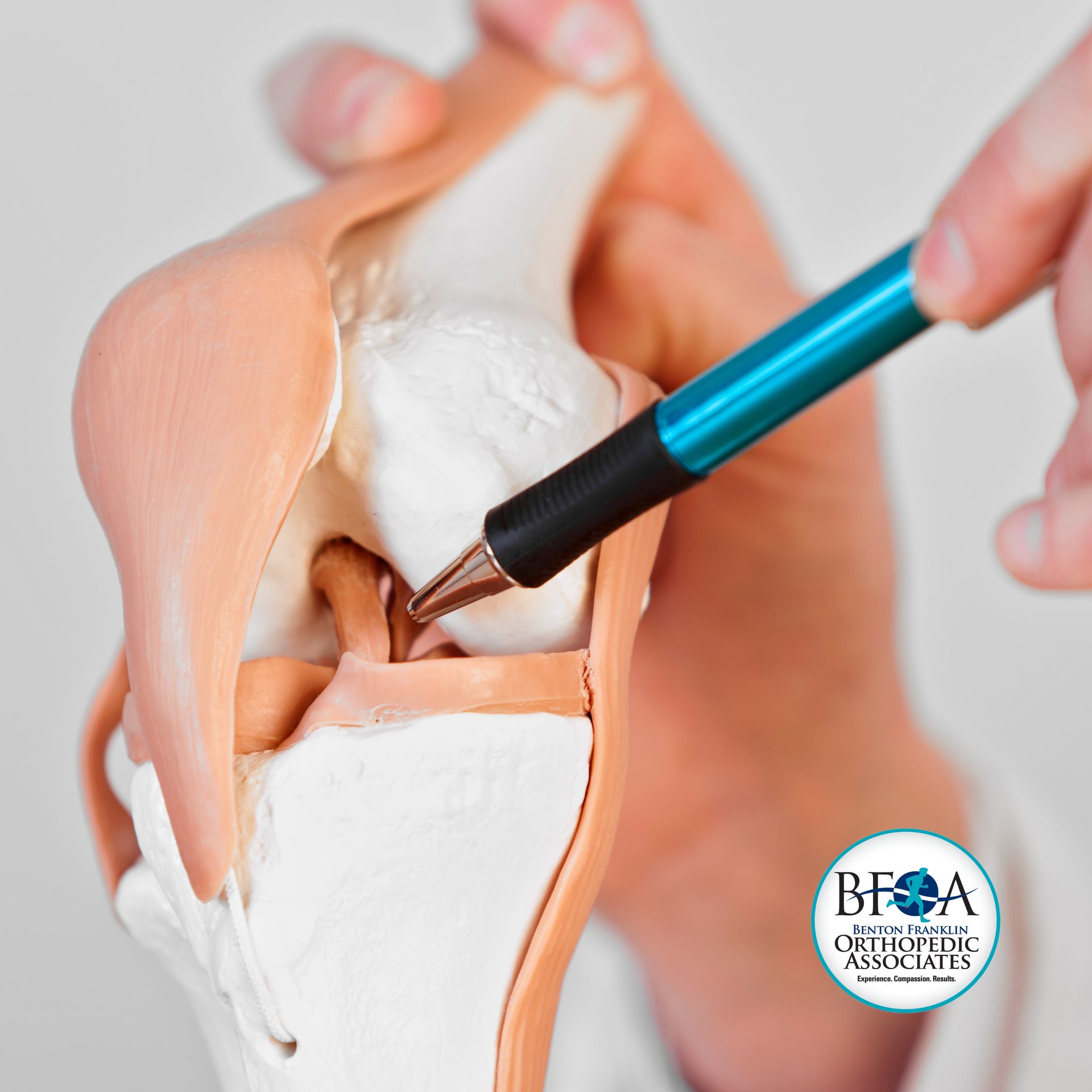
An ACL tear is a common and serious knee injury, especially among athletes and active individuals. At Benton Franklin Orthopedic Associates (BFOA), we specialize in diagnosing and treating ACL injuries with a full spectrum of care—from conservative management to advanced surgical reconstruction and in-house physical therapy.
What Is an ACL Tear?
The anterior cruciate ligament (ACL) is one of the key ligaments that stabilize your knee joint. It connects the thighbone (femur) to the shinbone (tibia) and helps control forward motion and rotation of the knee. When this ligament is overstretched or torn, it can lead to pain, instability, and long-term joint damage if not properly treated.
ACL injuries often occur during activities that involve:
- Sudden stops or changes in direction.
- Pivoting or twisting motions.
- Landing awkwardly from a jump.
- Direct impact to the knee, such as in football or car accidents.
- Overextension or hyperflexion of the knee.
Athletes in sports like soccer, basketball, skiing, and football are particularly at risk. Interestingly enough, since the early 2000's; patients who run or jog with their pets have seen an increased risk for sudden stops from their pets.
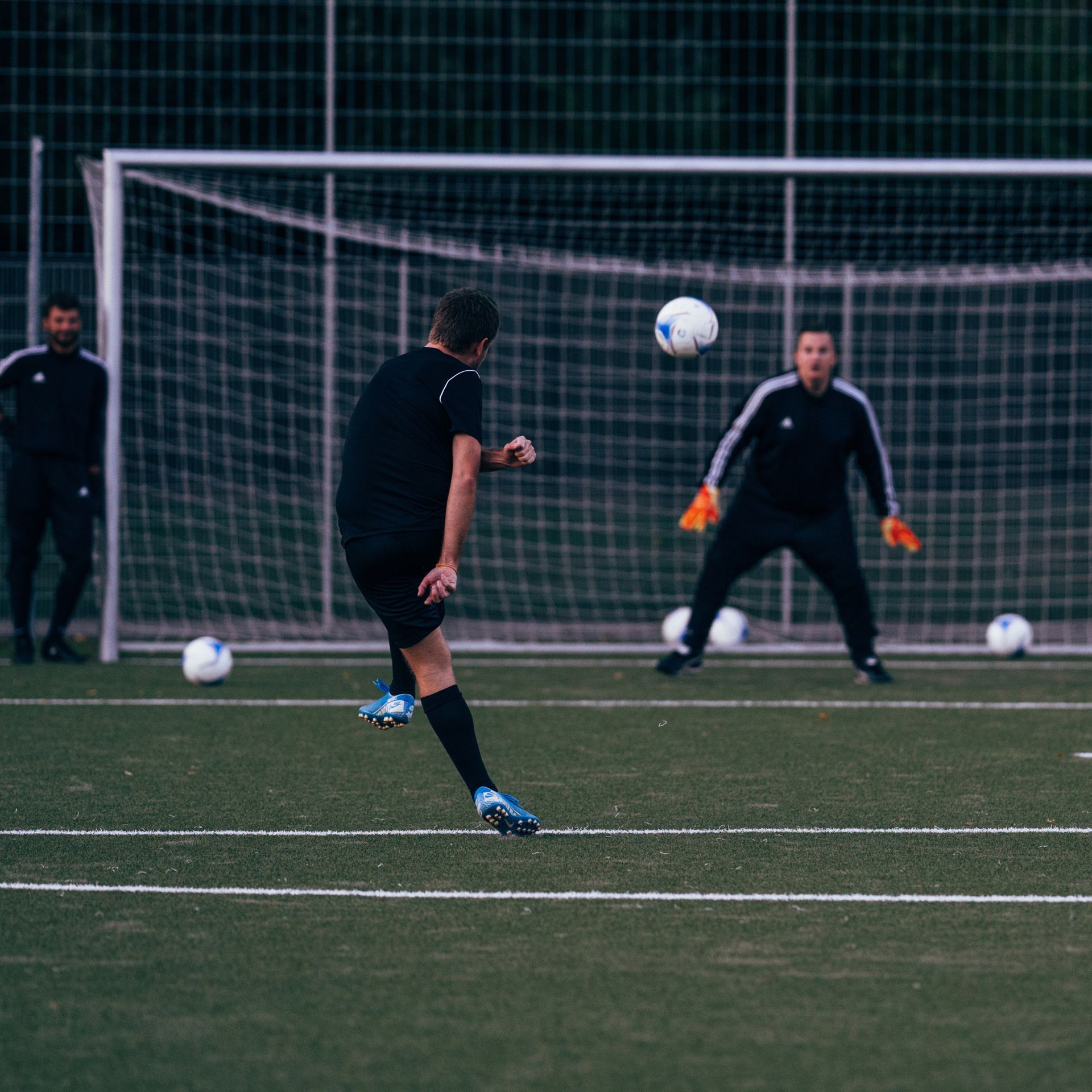
Common symptoms of an ACL Tear
Most people know the moment they tear their ACL and in our history usually pinpoint the time and day of an activity which lead to the injury. ACL tears often occur in high-demand sports and running activities, and the symptoms can be both sudden and severe. Understanding these signs is crucial for early diagnosis and effective treatment
Common Symptoms of an ACL Tear:
- A loud “pop” or snapping sound at the moment of injury—many athletes can pinpoint the exact moment it happened
- Immediate, intense pain that may subside quickly but returns with movement
- Rapid swelling within the first 24 hours due to bleeding inside the joint
- Instability or a “giving way” sensation, especially when pivoting or changing direction
- Loss of full range of motion, making it difficult to fully straighten or bend the knee
- Tenderness along the joint line
- Difficulty bearing weight or walking without limping
In Runners and Sports-Specific Contexts:
- Runners may notice a sudden inability to continue running, especially after a misstep, awkward landing, or sharp turn.
- Basketball and soccer players often report the injury occurring during a jump stop, pivot, or sudden deceleration.
- Skiers may experience the tear during a fall with twisting of the knee while the foot remains planted.
- Athletes returning too soon after a minor knee injury may be at higher risk for a full ACL tear due to weakened joint stability.
Even if pain subsides, persistent instability or swelling is a red flag that should not be ignored. Continuing to train or compete on a torn ACL can lead to further damage, including meniscus tears or cartilage wear.
We use a comprehensive approach to accurately diagnose ACL injuries:
- Medical History & Physical Exam
- We begin by discussing how the injury occurred and evaluating symptoms.
- Special tests like the Lachman test or pivot shift test help assess ligament stability.
- Imaging
- X-rays rule out fractures or bone damage.
- MRI scans provide a detailed view of soft tissues, confirming the extent of the ACL tear and identifying any associated injuries (e.g., meniscus tears, cartilage damage).

At Benton Franklin Orthopedic Associates, we believe in “Conservative care first. Surgery only when necessary.” Not all ACL tears require surgery—especially for older adults or those with low activity levels.
Our non-surgical treatment options could include one or more of the following below:
1. RICE Protocol (Rest, Ice, Compression, Elevation):
- Rest: Avoid activities that aggravate the knee, especially twisting or pivoting motions.
- Ice: Apply ice packs for 15–20 minutes every few hours to reduce swelling and pain.
- Compression: Use an elastic bandage or knee brace to minimize swelling and support the joint.
- Elevation: Keep the knee elevated above heart level to help reduce inflammation.
2. Medications:
- NSAIDs (Nonsteroidal Anti-Inflammatory Drugs) such as ibuprofen or naproxen can help relieve pain and reduce swelling.
- In some cases, topical anti-inflammatory creams may also be recommended.
3. In-House Physical Therapy:
- Our licensed physical therapists work closely with our orthopedic team to design a customized rehabilitation plan.
- Therapy focuses on:
- Strengthening the muscles around the knee to improve joint stability.
- Improving flexibility and range of motion.
- Correcting movement patterns to prevent future injuries.
- Gradual return-to-activity programs for athletes and active individuals.
4. Activity Modification:
- We may recommend temporarily avoiding high-impact activities such as running, jumping, or squatting.
- Low-impact exercises like swimming or cycling may be introduced as healing progresses.
5. Knee Bracing or Support:
- A supportive knee brace may be used to stabilize the joint during recovery, especially if the tear causes instability or locking.
6. Injections (Emerging Options):
- While not standard for all cases, some patients may benefit from:
- Corticosteroid injections to reduce inflammation and pain.
- Platelet-Rich Plasma (PRP) or other biologic injections, which are being studied for their potential to promote healing in certain types of meniscus injuries.

When Is ACL Surgery Necessary?
At Benton Franklin Orthopedic Associates, we believe in “Conservative care first. Surgery only when necessary.” However, there are specific situations where ACL reconstruction surgery becomes the best or only option for restoring knee stability and function.
Surgery Is Typically Recommended When:
- The ACL is completely torn (Grade 3 sprain) and the knee is unstable
- You experience repeated episodes of the knee “giving out”, even during daily activities
- You want to return to high-demand sports like soccer, basketball, skiing, or football
- You have a combined injury, such as a torn meniscus or damage to other ligaments or cartilage
- You are young and active, and want to prevent long-term joint damage or arthritis
- Non-surgical treatment has failed to restore stability or relieve symptoms
Why Surgery May Be Necessary:
A torn ACL cannot heal on its own because the ligament lacks a direct blood supply. While some individuals with low activity levels may manage well without surgery, most people—especially athletes—require surgical reconstruction to regain full function and prevent further injury.
What Happens Without Surgery?
Without surgical repair, a torn ACL can lead to:
- Chronic knee instability
- Increased risk of meniscus tears
- Early onset osteoarthritis
- Reduced ability to participate in sports or physically demanding work
Our Surgical Expertise Includes:
1) ACL Reconstruction Surgery:
- Using minimally invasive arthroscopy, we replace the torn ligament with a graft (often from the patient’s own hamstring or patellar tendon).
- This restores knee stability and function.
- Advancements have been made to give you function and the ability to walk pain free.
2) Revision ACL Surgery
- For patients with failed previous repairs, we offer advanced revision techniques to restore knee health.
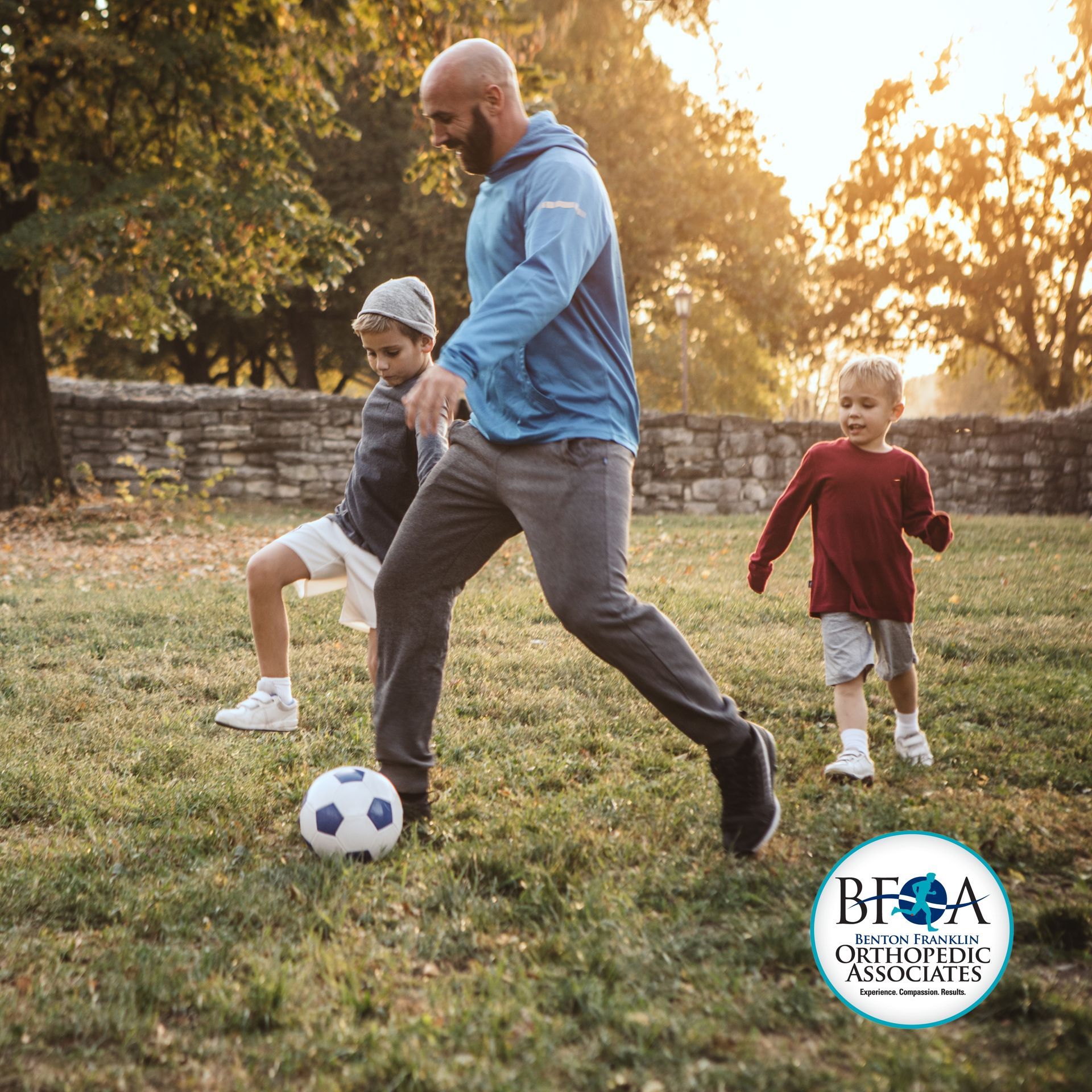
Take the First Step Toward Healing
At Benton Franklin Orthopedic Associates, we’re committed to helping you move better, feel stronger, and live pain-free. Whether you're an athlete sidelined by a meniscus tear or someone dealing with chronic knee discomfort, our team is here to guide you every step of the way—from diagnosis to recovery.
With expert orthopedic care, in-house physical therapy, and a philosophy of “Conservative care first. Surgery only when necessary,” you can trust that your treatment plan will be tailored to your needs and goals.
🦵 Don’t let knee pain hold you back.
📅 Schedule your consultation today and take the first step toward getting back to the activities you love.
📞 Call us at (509) 586-2828
📍 Visit us at 8200 W Gage Blvd, Kennewick, WA 99336
🌐 Book online at www.bfoaonline.com


